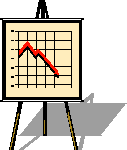 Slumps can be devastating. Your goals are in jeopardy you can become depressed and they can become self-perpetuating. Some people get in a slump and never get out, effectively establishing a new and much lower level of performance. Follow these three steps and any slump you get into will be short lived and you will soon be back on your way to achieving your financial goals.
Slumps can be devastating. Your goals are in jeopardy you can become depressed and they can become self-perpetuating. Some people get in a slump and never get out, effectively establishing a new and much lower level of performance. Follow these three steps and any slump you get into will be short lived and you will soon be back on your way to achieving your financial goals.
- CHANGE YOUR ACTIVITY LEVEL – Make more calls. Slumps affect your outlook, expectation of success and your mindset. All three will have the effect of depressing the number of call you make. I bet if you check your activity in the slump period it is lower than normal. So Pick up the phone and make some calls. Call new people. Call old prospects. Call clients. Call old clients. Get out or the office and go see people. You will feel better about yourself and even at lower closing rates your sales will go up.
- CHANGE THE SCENERY – Call higher in the organizations than you are used to calling. You may be out of your comfort zone but you will get different questions, different levels of problems to discuss and they may actually have authority to move forward where your regular contact did not.
- CHANGE YOUR QUESTIONS – Ask new and different questions. Ask questions you have been avoiding. New questions mean different conversations which will inevitably lead to different outcomes.
Believe it or not slumps are mostly a mindset problem. Change your mindset and the slump will end. A famous baseball player once answered a reporter’s question about his slump with the following “What slump! I am not in a slump! I may not be getting hits right now but I am not in a slump!” He went on to set records for hitting because in his mind (and reality) he was never in a slump


